![]() Windy.
Windy.
 WeChat
WeChat
 WhatsApp
WhatsApp
Click:438 seen
Outdoor camping adventures are fun, but safety can't be ignored. Here are some things to focus on:
Preparation Before Departure
1. Collect information: Understand the weather, terrain, geological conditions and surrounding environment of the camping expedition destination in detail in advance. For
example, the weather in the mountains is changeable, check the weather forecast in advance, and avoid going in bad weather such as heavy rain and strong winds. More
accurate information can also be obtained through local travel forums, outdoor communities or by consulting professionals.
2. Make a plan: Plan the itinerary, including the departure point, the destination, the rest point and the camping point on the way. At the same time, let your family or friends
know your travel schedule and expected return time, so that you can rescue them in case of an accident.
3. Check the equipment: carry out a comprehensive inspection of all the equipment carried to ensure its good performance and normal function. For example, check whether
the tent is broken, whether the sleeping bag is warm enough, and whether the stove can be lit properly.
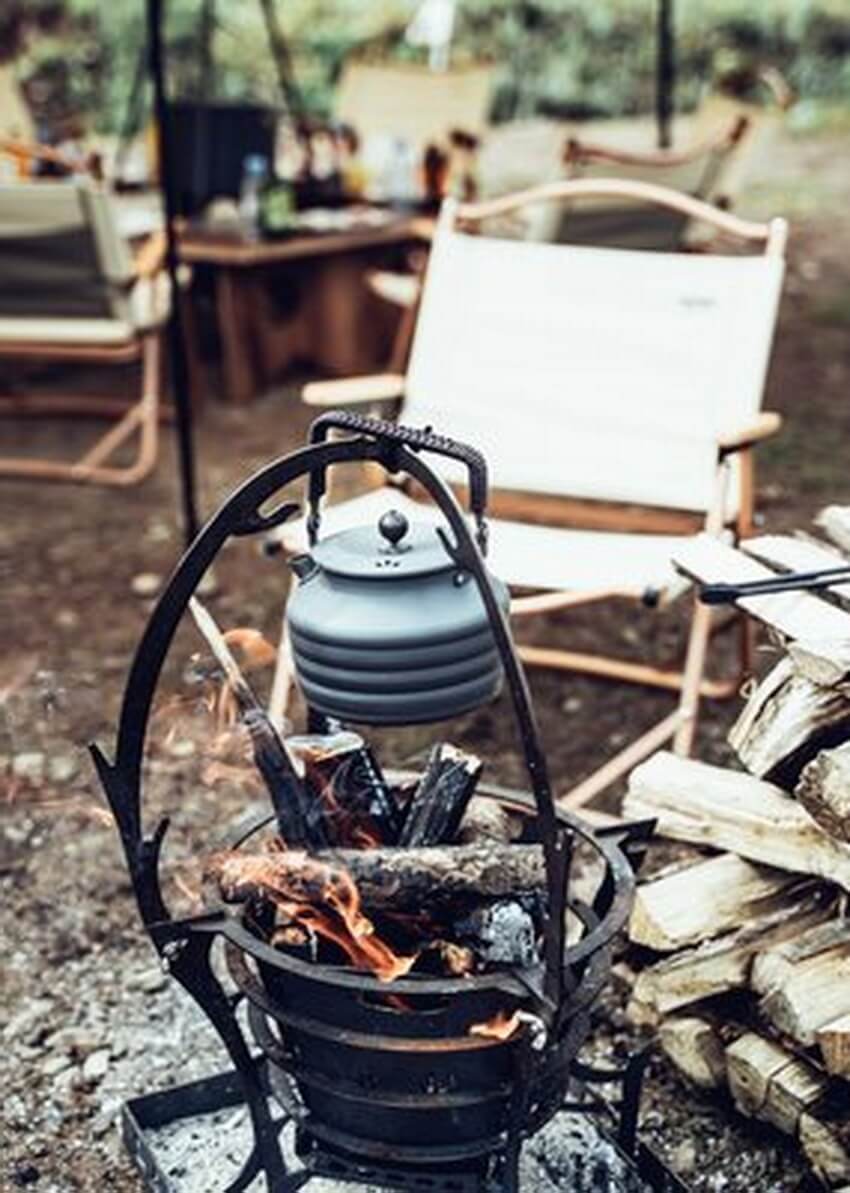
Camp Selection
1. Safe terrain: Choose a high, flat and dry place to set up camp, and avoid making camp in dangerous areas such as valleys, rivers and cliffs. The valley is prone to flash
floods during heavy rains, the river may be flooded due to rising water, and there is a risk of falling rocks below the cliffs.
2. Keep away from dangerous objects: Keep away from dead trees, loose rocks and other potentially dangerous objects around the camp to prevent accidents during camping.
3. Suitable environment: try to choose a place close to the water source but not flooded, and consider the ventilation and sunshine of the camp to ensure the comfort of living.
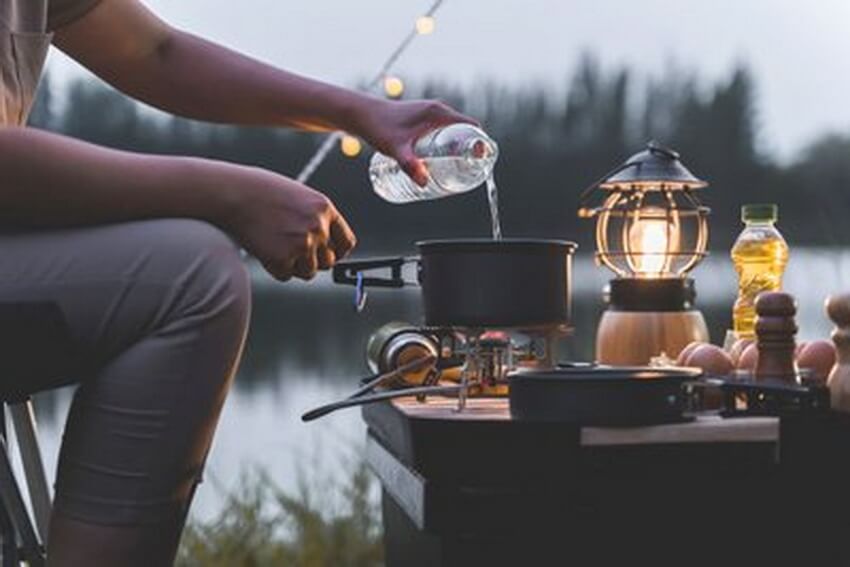
Fire Safety
1. Choose the right place: Set up a dedicated fire area in the camp, preferably in an area with a fixed fire pit or stone circle. If not, you can build your own simple ring of fire
with stones, but make sure there are no inflammables around.
2. Control the fire: Do not let the fire be too large when starting a fire, and thoroughly extinguish it after use to ensure that no Mars remains. It can be doused with water or
buried with soil and checked again before leaving.
3. Use the right fuel: use the fuel that meets the requirements of the stove, do not use flammable, explosive or smelly fuel. When using the stove, it is necessary to operate
correctly according to the instructions to avoid leakage or explosion.
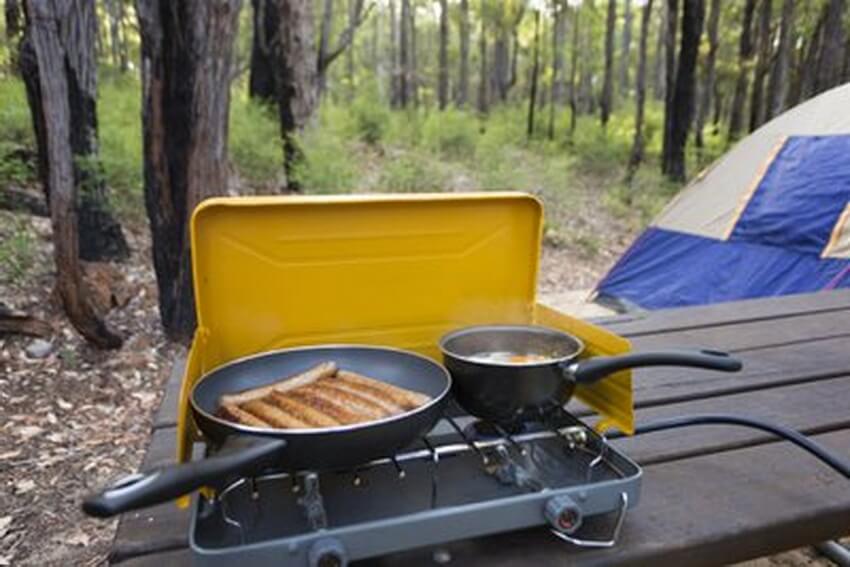
Food Safety
1. Fresh ingredients: Bring fresh ingredients to avoid eating spoiled or expired food. For perishables, store them properly, such as using refrigerated containers.
2. Safe drinking water: If there is no reliable drinking water source, the natural water source should be purified and treated before drinking. Water purifiers, purification tablets
and other tools can be used for purification.
3. Hygienic operation: When cooking and handling food, pay attention to hygiene and keep your hands and utensils clean. Avoid eating cold and raw food to prevent food
poisoning.
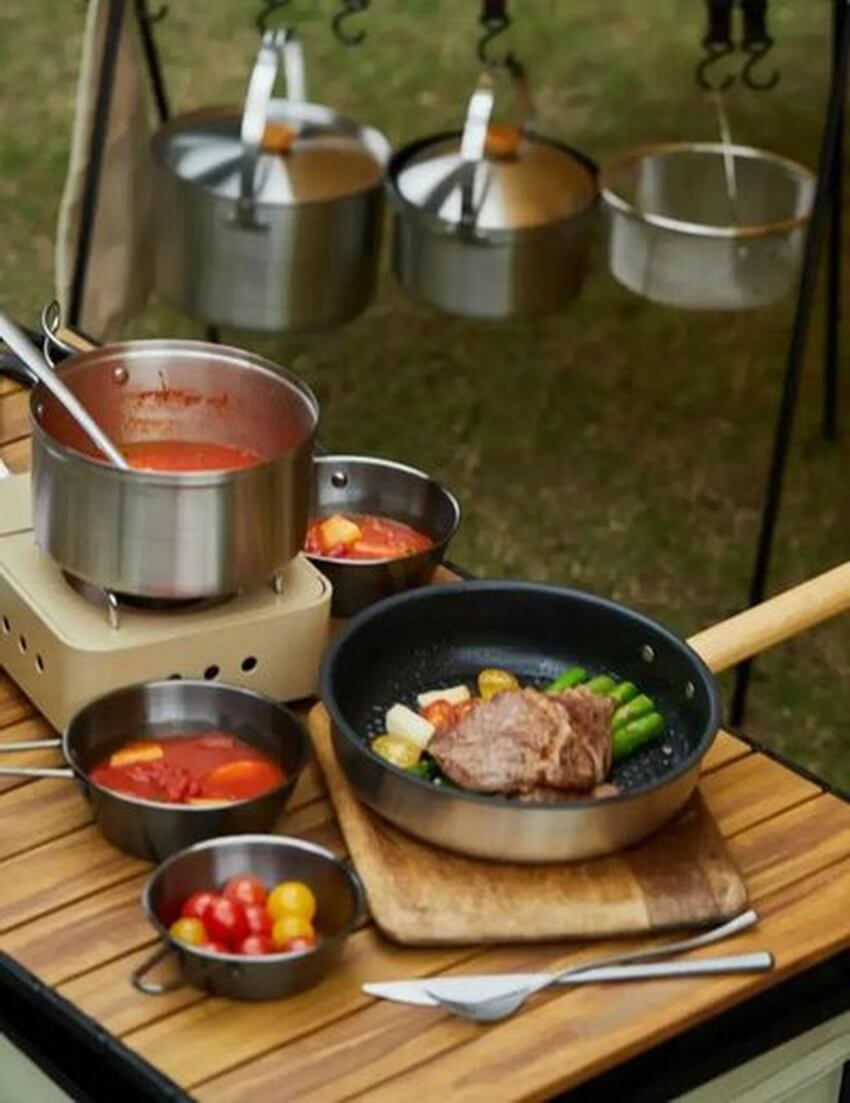
Personal Protection
1. Dress appropriately:
Choose suitable clothes and shoes according to the weather and activity content, and take good measures against sun protection, warmth and rain.
For example, wear a hat and sunscreen in sunny weather, and wear warm clothing in cold weather.
2. Prevention of mosquito bites:
there are many mosquitoes in the field, so it is necessary to carry mosquito repellent, mosquito repellent and other anti-mosquito products to
avoid mosquito bites and diseases.
3. Pay attention to your physical condition:
During the camping expedition, pay attention to your physical condition, and take a rest or seek help in time if you feel
uncomfortable. Avoid excessive fatigue and strenuous exercise, and maintain a good physical and mental state.
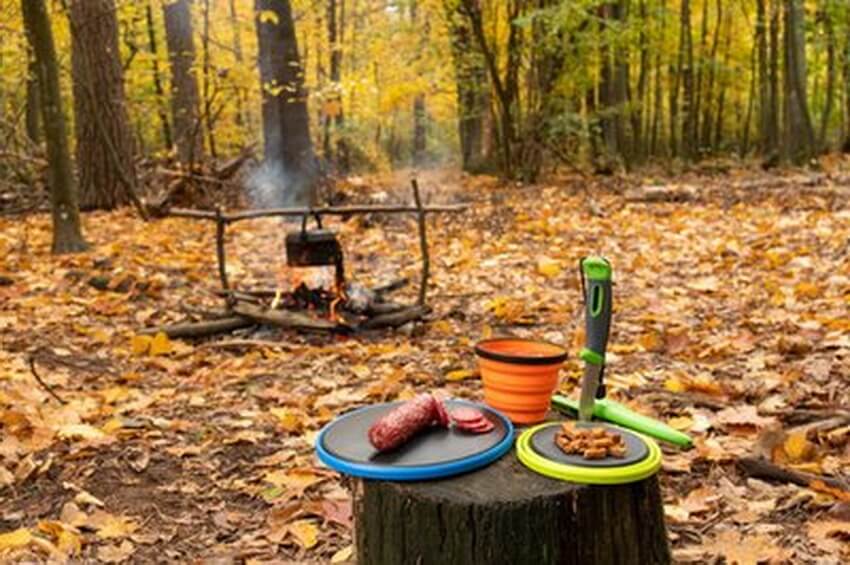
Field Safety
1. Follow the route:Follow the pre-planned route and do not deviate or venture into unknown areas. If you get lost, stay calm and try to use a compass, map and other tools to
find the right direction.
2. Travel in groups: Try not to travel alone, especially in remote or dangerous areas. If you must travel alone, inform your companions of your whereabouts and expected time
of return.
3. Dealing with wild animals: When encountering wild animals in the wild, keep your distance and do not actively provoke or approach them. Learn about the habits and coping
strategies of common wildlife to ensure your own safety.
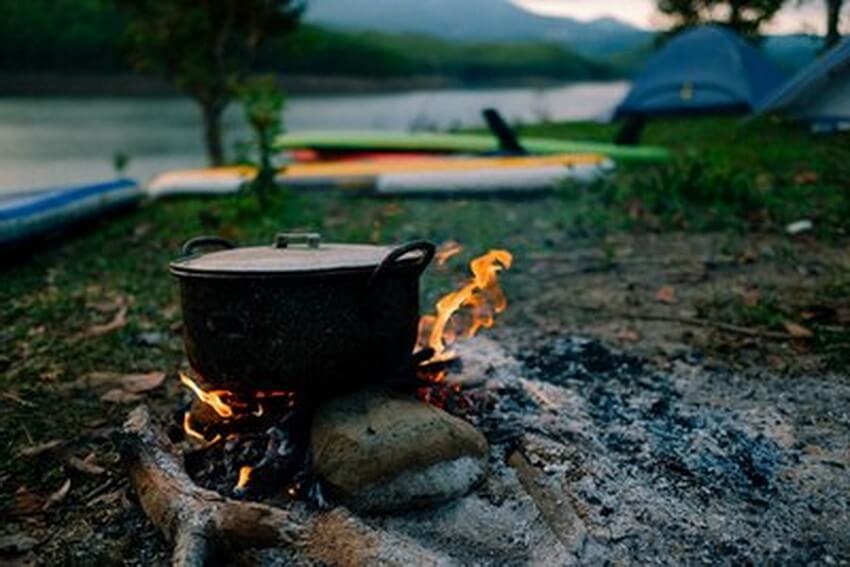
Through the above measures, you can effectively reduce the safety risks in outdoor camping expeditions to ensure the smooth progress of activities and their own safety.
